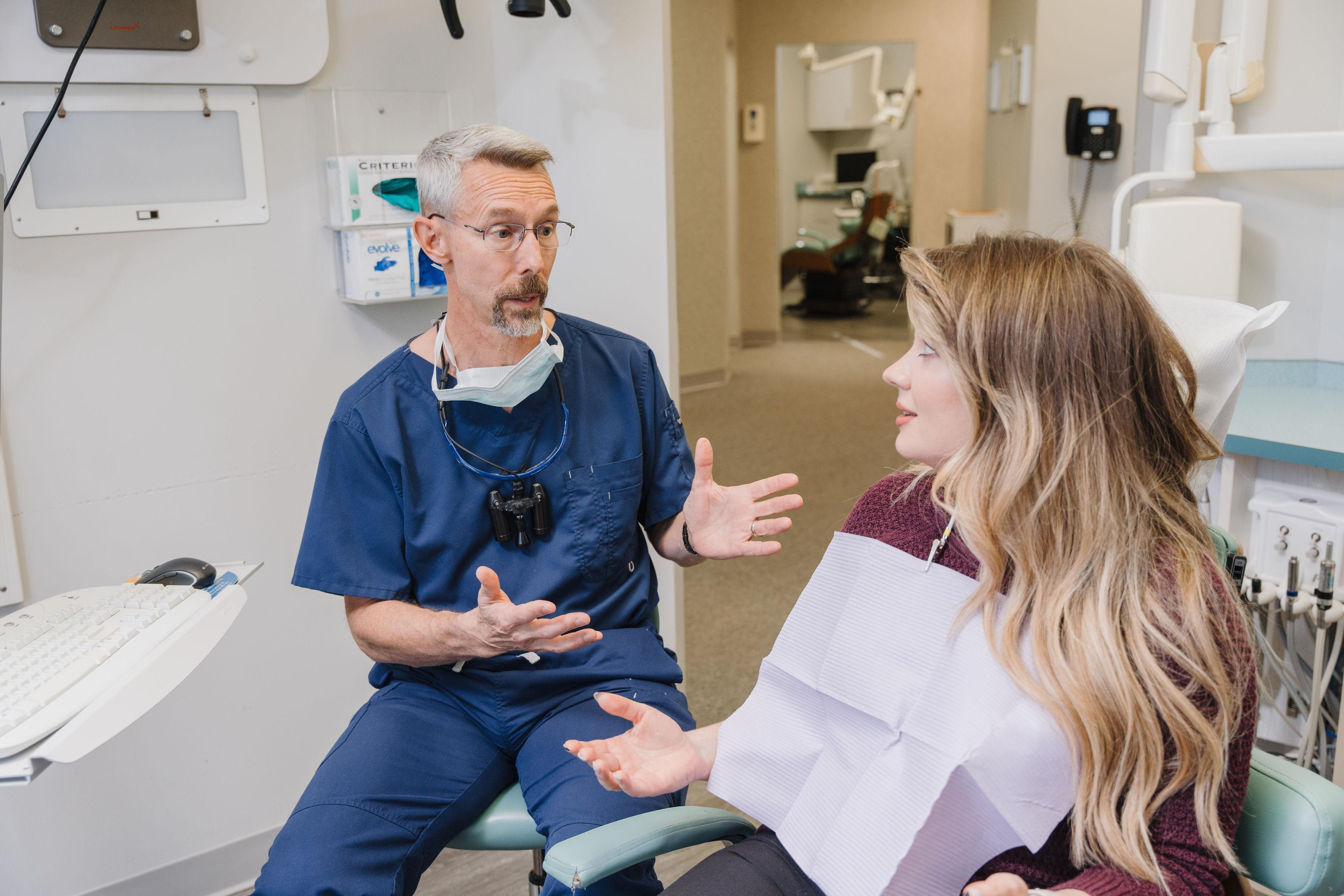What to Expect
Whether you're anticipating a procedure or have recently undergone endodontic treatment, understanding how to care for your smile during the healing process is crucial. At Indianapolis Endodontics, our priority is to provide you with comfort and knowledge during your visit, ensuring that you feel well-informed and prepared for the aftercare journey ahead.
Avoid Dental Discomfort
Following your visit, it is common to experience mild tenderness or discomfort, which typically resolves within a few days. To alleviate any discomfort, we suggest taking over-the-counter pain medication such as ibuprofen or acetaminophen. However, if your discomfort persists for several days after your endodontic procedure, we encourage you to reach out to our office. Our knowledgeable team will conduct a brief phone assessment to determine the potential cause and, if needed, schedule a follow-up appointment for you. Your well-being is our top priority, and we are here to provide the necessary support throughout your healing process.
After Surgery
Swelling
It is common to experience swelling following surgery, and this is a natural part of the healing process. To help reduce swelling, you can apply an ice pack to the surgical site for up to 30 minutes. During the first 6 hours after surgery, you can alternate ice packs for 15 minutes on and 15 minutes off. Additionally, it is advisable to keep your head slightly elevated while sleeping for the first few nights after the procedure. These measures will aid in managing swelling and promote a smoother recovery.
Saline Rinses
To maintain cleanliness at the surgical site, you can perform regular saline rinses using a mixture of warm water and salt. This simple yet effective practice helps to keep the area clean and promotes a healthy healing process.
Eating Afterwards
During meals, it is advisable to avoid contact between food and the surgical site to prevent dislodging sutures and minimize the introduction of bacteria. Additionally, it is important to follow a soft food diet on the day of and the day after the surgery for your comfort and to aid in the healing process.
Numbness
To prevent accidental burns, it is recommended to refrain from consuming hot fluids while you are still experiencing numbness. It is advisable to wait until the numbness subsides before consuming hot foods or beverages. This precaution ensures your safety and minimizes the risk of unintentional injuries.
Relax
To facilitate a smooth healing process, it is essential to prioritize rest and allow your body the necessary time to recover. This entails refraining from engaging in strenuous exercise for a period of 48 hours following the surgery. By adhering to this guideline, you support your body's healing efforts and promote optimal recovery.
After Root canal Therapy
1.
You are numb. Be careful not to bite your lip, cheek or tongue.
2.
The tooth will be tender and biting on it should be avoided. Do not chew anything hard as this tooth is also prone to fracture. In fact, it is a good idea to avoid eating on the affected area until the soreness subsides, and the final restoration is in place. If you have a crown already and the permanent filling was placed, you can resume normal function once the soreness subsides.
3.
The tooth may hurt for a period of time. The onset of post-operative pain may be delayed 24-48 hours following the procedure. There can be inflammation around the root that can continue to cause pain even though the nerve has been removed. You may also be sore from having your mouth open for a prolonged period of time, sore from the injection site(s) or from the spring and shield (rubber dam) used to keep the tooth clean during the procedure. If your symptoms are gradually improving, continue to give it time.
4.
If you have a temporary filling, it may wear down and feel like it has fallen out. It is normal to have a ‘divot’ on the temporary filling with use. It rarely falls out entirely. Do avoid any sticky or chewy foods while fitted with a temporary filling.
5.
You should schedule to have the final restoration completed as soon as possible (ideally within 1 month) to avoid potential reinfection and to reduce the chance of breaking the tooth. If you do not know if you have the final restoration, please call the office to find out.
Non-Prescription pain management
- Take 600mg Ibuprofen (Advil, Motrin, etc.) every 6 hours for 1-3 days or 440mg Aleve every 12 hours.
- If 600mg Ibuprofen does not provide 6 hours of relief, then add 1000mg acetaminophen (Tylenol) in conjunction with the Ibuprofen. DO NOT take more than 3200mg Tylenol in a 24 hour period.
- If you take Vicodin, Norco, Percocet, etc. DO NOT TAKE TYLENOL. However, you can still take the Ibuprofen.
- If swelling occurs, apply ice.
call us if:
- The pain is severe and not responding to medication
- You experience swelling in that area
- If the pain is lasting longer than you feel it should
- The tooth breaks
- You have any other questions that have not been answered.
Maintain a Healthy Smile and Seek Peace of Mind with Indianapolis Endodontics
Remember to follow our guidance for proper care, including regular brushing and flossing while avoiding the surgical site until your next visit. Should you experience any concerns or discomfort, don't delay—reach out to our dedicated team right away! We are here to provide immediate support, answer your questions, and ensure your peace of mind. Trust Indianapolis Endodontics for exceptional care and a worry-free healing journey. Contact us today!
